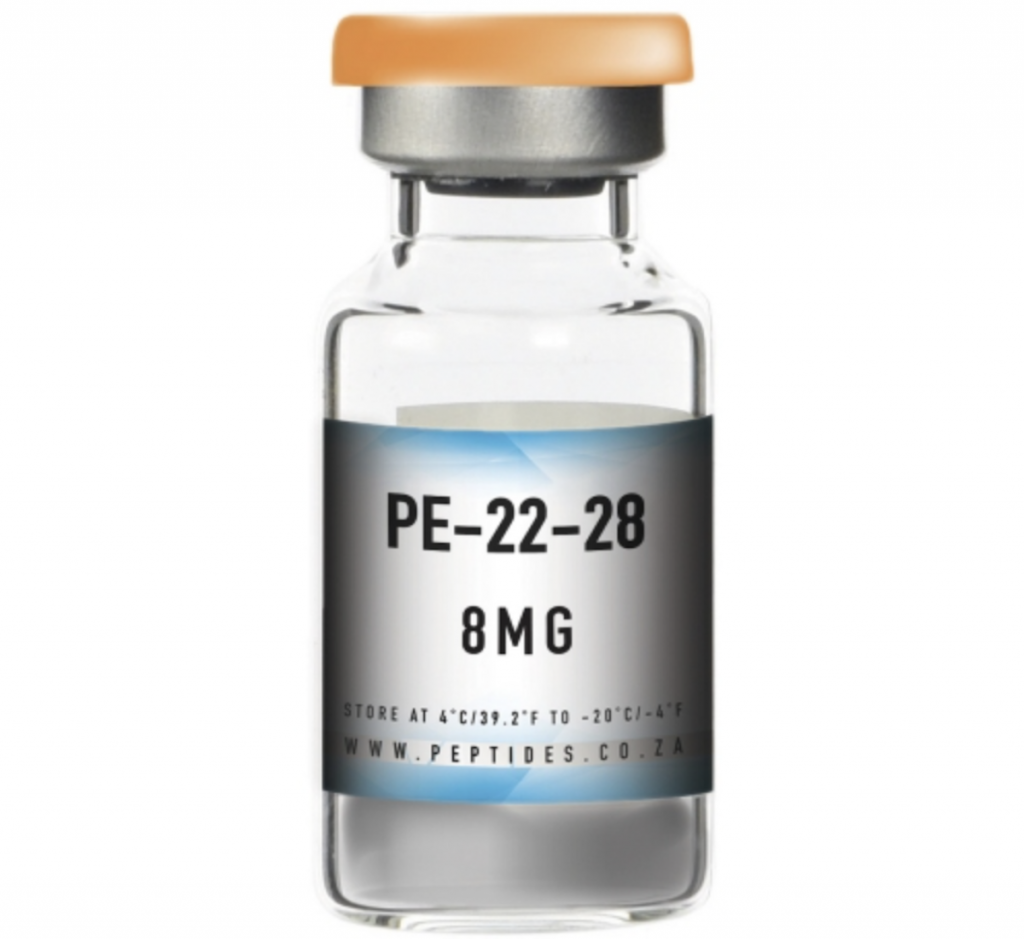Even before the current pandemic, depression has been a major mental health issue for more than 260 million people globally. Higher risks of depression have been linked with modern-day stressors, such as financial instability, social media fatigues, and demanding workloads. A significant population of Americans has been reliant on anti-depressants, but anti-depressants bring forth severe health risks and adverse side effects.

So, is there any therapeutic peptide that counters the harmful effects of depression? A new peptide, PE-22-28, has recently been known to fix depressive symptoms. Read on to find more!
Detrimental Effects Of Prescription Anti-depressants:
Do you know the most explored medications on the internet are anti-depressants? The most commonly prescribed anti-depressants are selective serotonin reuptake inhibitors (SSRIs). SSRIs work to decrease serotonin reuptake in the brain to fight depressive symptoms.
Sadly, anti-depressants always come with adverse side effects. For example, SSRIs have been shown to increase the risk of some tumors. Some studies have shown a link between SSRIs and increased risk of stroke [1].
Paroxetine, a potentially harmful SSRI, has been found to be associated with an increased risk of breast cancer [2].
Furthermore, patients with breast cancer using Paroxetine are at a high risk of death [3].
Side Effects Associated With Prescription Anti-depressants:
Common side effects of traditional anti-depressants include:
- Changes in heart rhythm: fast heartbeat, palpitations.
- Disturbances in the central nervous system: orthostatic hypotension, hypertension, QT interval prolongation.
- Gastrointestinal symptoms: dyspepsia, diarrhea, loss of appetite, nausea, gastric bleeding.
- Weight changes: unexplained weight gain or weight loss.
- Sleep changes: insomnia
- Sexual dysfunction: low sex drive
The above-listed side effects that people experience with prescription anti-depressants can linger for a prolonged time. This is the reason researchers are looking for ways to discover new treatments to reduce the potential side effects.
PE-22-28 Peptide For Treating Depression: How It Was Discovered?
Fortunately, depression treatment not only relies on SSRIs, but other options have also proven to be viable. Back in 2006, a potential target drug called TWIK-related potassium channel-1 (TREK-1) was discovered to treat depression [4].
This drug was of particular interest as it played a role in stroke-related depression, called “post-stroke depression (PSD). [5]” Later, it was discovered that a protein called Sortilin was responsible for regulating TREK-1 activity [6].
On further investigation, it was found that Sortilin released a 44-amino-acid propeptide (PE) into the bloodstream, which was actually responsible for blocking TREK-1 – an original target in depression. This led to the development of Spadin (PE-12-28). Compared to conventional anti-depressants like fluoxetine, Spadin showed anti-depressant effects within 4 days of treatment.
Spain did a much better job treating depression than fluoxetine (treated depression within 3-4 weeks). In 2017, a much shorter analog of Spain, called mini Spadin (the 7-amino-acid peptide, PE-22-28), was discovered and synthesized.
PE-22-28 is a natural and fast-acting peptide having its stability lasting longer than 23 hours. PE-22-28 also treats depression substantially faster than other TREK-1 blocker anti-depressants, such as Paroxetine and Citalopram [7].
Benefits Of PE-22-28 In Treating Depression:

Depression:
PE-22-28 has been discovered to be the most therapeutic agent in preventing depression. It has been found to relieve depression within just four days without triggering any side effects on functions controlled by the TREK-1 channel. PE-22-28 works to effectively fight depression by reversing the loss of hippocampal volume while stimulating neurogenesis [8].
“The hippocampus is a critical brain region responsible for memory and learning. Being a plastic brain region, it is vulnerable to a variety of insults that can cause disorders ranging from depression to Alzheimer’s disease.”
PE-22-28 has been reported to treat depression symptoms without causing any side effects. It does not affect blood pressure, muscles, heart, cognition, and libido, all of which are most likely to be affected by prescribed anti-depressants.
Post-Stroke Depression:
PE-22-28 may be the only anti-depressant Spadin that can also treat post-stroke depression, a common symptom of post-brain ischemia that is refractory to standard treatment due to the overexpression of TREK-1. In experimental mouse models, PE-22-28 can reverse or suppress this upregulation [9].
How PE-22-28 Is Better Than Other Prescription Anti-depressants?
As compared to the most prescription anti-depressants, PE-22-28 and its derivatives are natural peptides. When no longer in use, these natural peptides do not arouse withdrawal behavior. PE-22-28 is considered to be fast-acting than other marketed anti-depressants, which take weeks to exert their effects. PE-22-28 only needs 4 days to show its anti-depressant effects.
PE-22-28 are synthetic analogs of spadin, representing higher stability and efficacy. Neurogenesis is a long-term outcome when you consume anti-depressant medications (SSRIs). The efficacy of anti-depressants is indicated by neuronal growth. PE-22-28 is truly efficient in inducing neurogenesis in just 4 days, compared to conventional anti-depressants. You may currently buy PE-22-28 peptide from GenX Peptides, an industry leading provider of high quality peptides for treatment of, HRT, TRT, hormone replacement, bodybuilding, depression, improved memory, anti-aging, and many more therapeutic benefits!
Does PE-22-28 Have Any Other Benefits Than Depression?
Other than treating depression, PE-22-28 also shows benefits, such as:
- PE-22-28 benefits the development of spatial memory, the growth and protection of neurons, memory formation, and neural plasticity.
- PE-22-28 is under continuous research for its ability to prevent and reverse symptoms associated with Alzheimer’s disease [10].
- Studies have shown that mice treated with Spadin or PE-22-28 did not exhibit enhanced seizure activity. Rather, they were resistant to developing generalized seizures [11].
- PE-22-28 has nootropic effects, such as boosting memory and learning.
- It can also be used to prevent anxiety and its associated symptoms.
What Is The Recommended Dosage Of PE-22-28?
The recommended dosage of PE-22-28 for treating depression is 400 mcg once a day in the morning, which should be administered intranasally. PE-22-28 is available in the form of nasal spray, tablets, and capsules. The acceptable daily dose of PE-22-28 is half-tablet (8 mg) or one tablet (16 mg). The dosage of PE-22-28 also depends on your personal needs and your body type. The preferred dosage isn’t in capsule form, rather intranasally at 400-800mcg per day as it is absorbed much better and faster than either capsule or tablet.
PE-22-28 should always be taken with your first of the day. If necessary, you should take the product continuously without cycles or pauses.
Are There Any Side Effects Of PE-22-28?
PE-22-28 is an efficient anti-depressant that is administered in low doses, which are enough for a clinical effect. Till now, PE-22-28 and other Spadin analogs do not have any side effects because they are:
- Natural peptides
- Have higher levels of safety and specificity
- Fast-acting
Conclusion:
Depression is a debilitating mood disorder that affects a significant population of America. Prescription anti-depressants, such as SSRIs, are used to treat depressive symptoms, but they can trigger adverse side effects. Spadin analogs, such as PE-22-28, have been found to efficiently treat depression without causing any side effects. The natural and fast-acting PE-22-28 can also treat anxiety, prevents symptoms of Alzheimer’s disease, and improve memory and learning.




